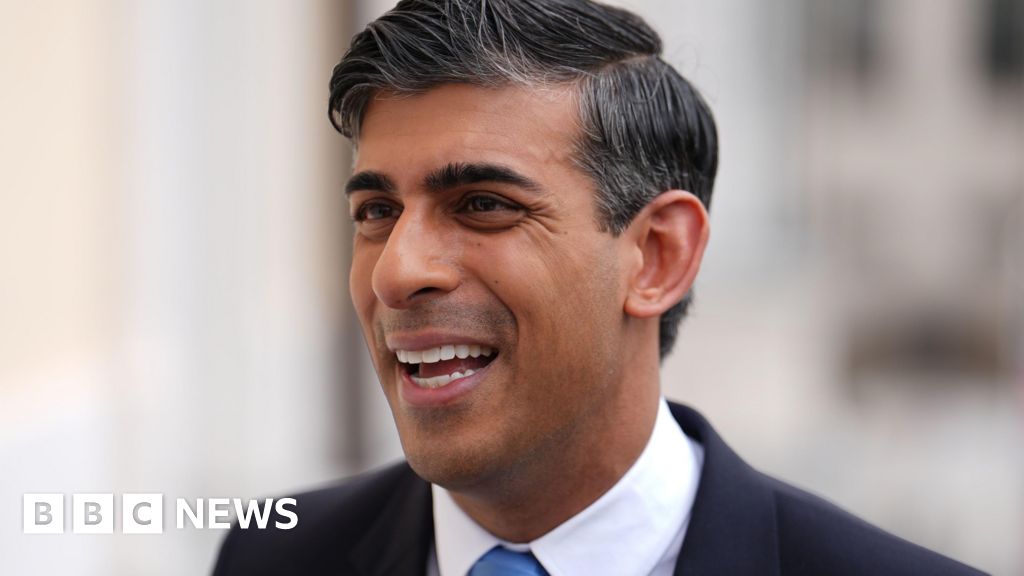World
Sunak to visit Scotland as election campaigns launch – BBC News

Prime Minister Rishi Sunak will visit Scotland later as the political parties launch their general election campaigns.
He is expected to speak to voters in Inverness along with Scottish Conservative leader Douglas Ross, who told the BBC his party would “beat the nationalists in crucial seats up and down Scotland”.
Mr Sunak announced there would be a general election on 4 July – when the school summer holidays will have begun in the majority of Scottish council areas.
First Minister John Swinney has said the move showed a “typical lack of respect” from the UK government.
Speaking to the BBC’s Good Morning Scotland, Mr Ross – who is the MP for Moray – said constituents had told him they wanted a government focused on improving education, the NHS and the economy.
He said: “They know in certain seats it’s going to be a very close fight between the Scottish Conservatives and the SNP.
“If they back the Scottish Conservatives their priorities will be at the forefront. If they back the nationalists it’ll be about independence.”
Mr Ross said candidates for his party would be campaigning for improvements to the A9 and the A96 and are focused on the NHS.
When asked why issues devolved to Holyrood would be the centre of a Westminster election campaign, he said: “They will be speaking about these issues, putting them at the top of the platform that they are standing on.”
There was widespread surprise at Wednesday’s announcement of a July election. Most politicians and journalists expected it to take place much later in the year, in autumn.
John Swinney, who became leader of the SNP and first minister earlier this month, said he did not think Scotland’s school holiday arrangements would have been “anywhere near the calculations made by the prime minister”.
He said: “What it means is that people who are going to be on holiday at the start of the school holidays in late June, early July have got to arrange a postal vote so that they can exercise their (right to) vote and be participants in our democracy, so that’s got to be put in place pretty quickly by folk.”
Despite the earlier election timetable, Mr Swinney said all his party’s candidates had been chosen and their manifesto was “well advanced”.
He added: “The fact that it’s going to be now, in the next six weeks, is welcome and it gives us the opportunity to take our message to the people of Scotland that Westminster government is giving us austerity, Brexit and the cost-of-living crisis.”
“Independence would give us the power to take our own decisions like re-joining the EU, ending austerity and supporting those in need and Scotland will only become independent if people vote SNP.”
Christine Jardine, the Liberal Democrat MP for Edinburgh West, said the Conservatives “ran out of ideas quite a while ago” and said she was looking forward to change.
“Don’t underestimate the importance of the Liberal Democrats in seats where we can be the ones to defeat the Conservatives in large parts of England and in Scotland,” she said.
New Westminster constituency boundary changes mean that Scottish voters will now return 57 MPs, down from 59 at the last election.
The Lib Dems have four MPs in Scotland just now and Ms Jardine believes this will increase, saying candidates have been running excellent campaigns in new areas.
She mentioned Susan Murray standing in Mid Dunbartonshire and Angus Macdonald in Inverness, Skye and West Ross-shire – both areas that have previously elected Liberal Democrats.
Ms Jardine added: “What we have to remember is this is about the future of the country and what we offer is change, what we offer are people who will work for you to ensure that the change in Westminster is change for your constituency.”
Scotland’s ‘critical role’
Pat McFadden, Labour’s national campaign co-ordinator, told the BBC they were in “good shape” in Scotland and would “assume nothing”.
He added: “But the really critical thing is that power of the vote in Scotland to send much more than a message, to actually be part of sending a Labour government to Westminster.
“We are not doing any deals. The aim is for a majority. We know that that’s ambitious but we want to bring stability to the country and I believe that voters in Scotland have got a critical role to play in this.”
Labour has several candidates standing in Scotland who are currently based in London one is a councillor in Lewisham – and Mr McFadden said the party still may have a few to select for Scottish seats.
Challenged on this, he said: “I don’t really mind where people have resided – what I care about is what they can do. I wasn’t aware that was banned but if it is I hope the ban is lifted.”
Lorna Slater, co-leader of the Scottish Greens, said the party will stand at least 31 candidates – more than ever before in Scotland.
She told the BBC: “Having Scottish Greens in the room at every hustings, at every media event, means that the climate and nature emergencies get a look-in because without us there they tend to get forgotten altogether.”
Asked whether there is a concern that Scottish Greens standing in a greater number of seats might split the independence vote, she said that is “kind of neither here nor there”.
Ms Slater said: “The SNP’s fortunes are a matter for the SNP.
“The independence movement – and it should be and is – larger than any one political party, so support for independence has been around about half the country for a while now and we aren’t going to get independence just from people elected to Westminster, it actually needs to be a national movement, we need to get support for independence up higher.”


